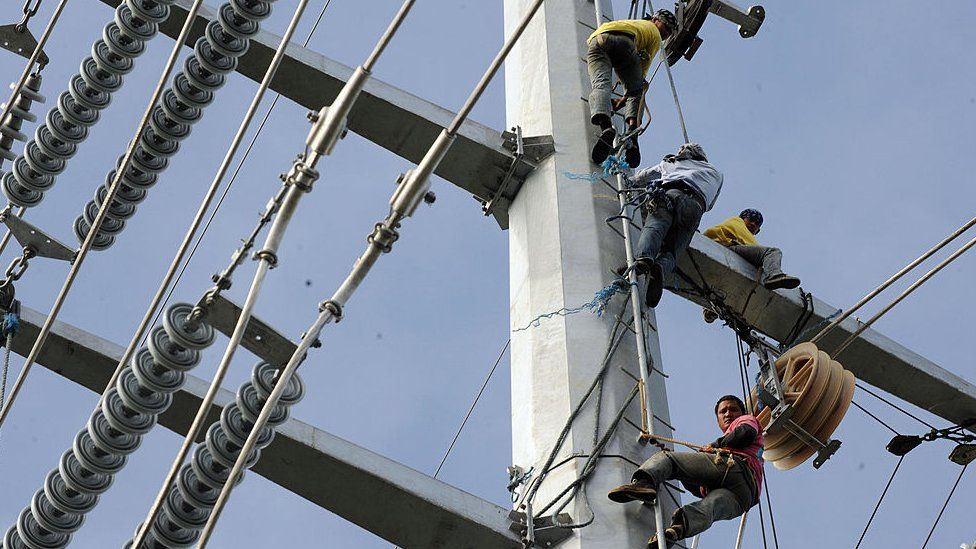China could 'turn off power' in the Philippines, senate hears
- Published

China could switch off the Philippines' national grid, congress has heard in Manila.
The head of the National Transmission Corporation confirmed the possibility during a senate session.
China has part-owned the Philippines' national grid since 2009 - leading one senator to question whether China's "hegemonic ambitions" posed a security threat to the Philippines.
The countries have a territory dispute in the South China Sea.
"We have given our grid - although 40% it appears - to a foreign corporation that has interests that collide with our country in the West Philippine Sea," said Senator Richard Gordon, using the Philippine name for the eastern parts of the South China Sea.
"And that [country] obviously has a hegemonic ambition."
The senate heard that - although the power could be switched off remotely - the Philippines could restore it within 24 to 48 hours.
How could China switch off power?
China's State Grid Corp has a 40% stake in the National Grid Corporation of the Philippines (NGCP) - which runs the country's lone power transmission line.
It transmits electricity all the way from Luzon - the northern end of the country - down to Mindanao in the south.
On Tuesday, Senator Risa Hontiveros asked - given Chinese control of the NGCP - "Is it possible for our power grid to be taken down remotely?"
The chair of the senate committee on energy Sherwin Gatchalian referred to advice from Melvin Matibag, president of the state-owned TransCo, which owns the grid, in his reply.
"Given the technological advancement right now in the telecommunications as well as in software, that is possible," he said.
In that unlikely event, what could the Philippines do?
Sen Gatchalian said several safeguards that were put in place when the NGCP was privatised.
He said in certain scenarios, the president has the power to order a takeover and electricity could be restored in 24 to 48 hours.
That includes during war, rebellion, public peril, calamity and disaster.
He also said there were rules around the management of a public utility remaining with the citizens of the Philippines.
Sen Hontiveros asked about reports that "only foreign engineers are able to troubleshoot...and actually control the NGCP's power transmission network" because of a system located in Nanjing, China.
She also asked about manuals appearing in a "Chinese language".
Sen Gatchalian said Filipinos were in control of the transmission line and that manuals had been translated to English.
The complicated relationship between China and Africa
Can China do this anywhere else?
In recent years many parts of the world have seen a rapid rise in foreign investment from China.
That economic ambition has included buying private companies, property, building huge infrastructure projects - like ports and bridges - and investing in the energy sector.
During the session Sen Hontiveros said the Nari Group supplied remote control systems to power grids in Kenya, Indonesia and Thailand.
"So those countries' experiences may also be sources either of assurance for us - or important cautionary lessons," she said.
- Published25 April 2019
- Published5 November 2018